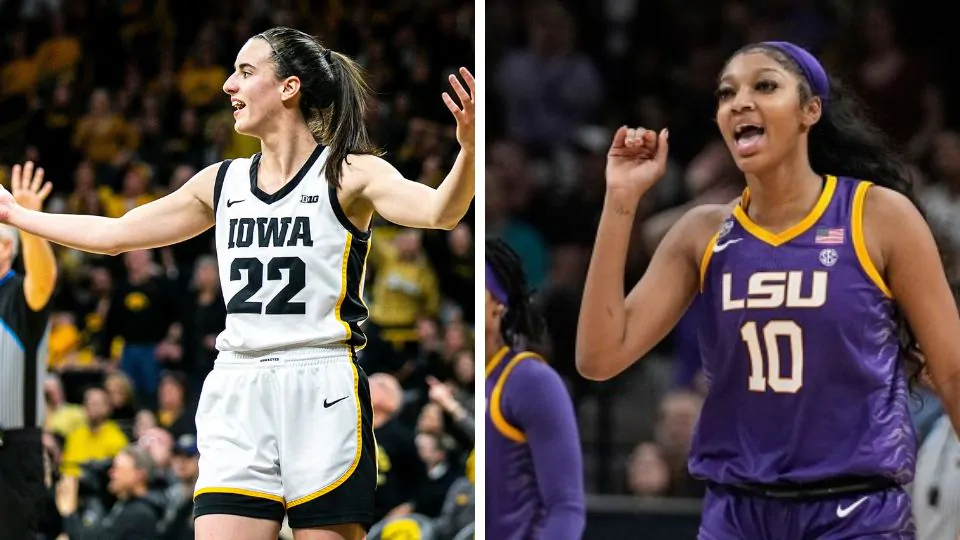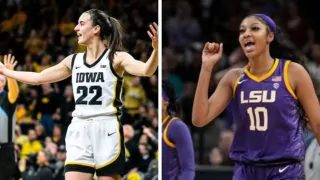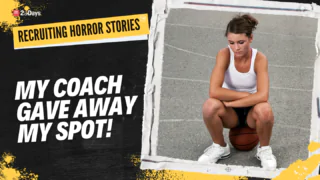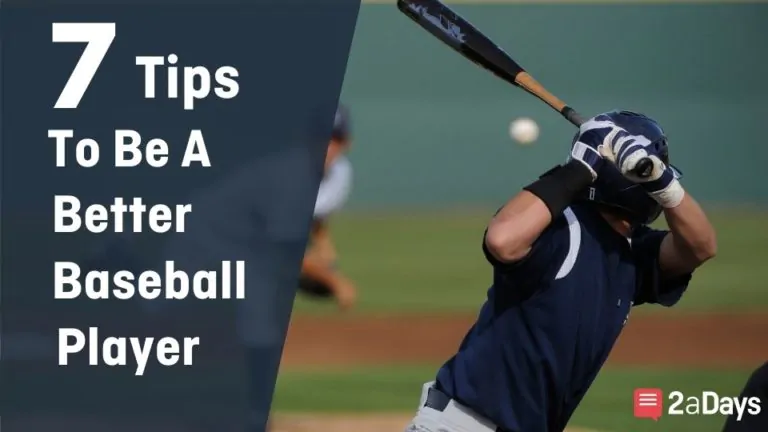In a historic and exciting matchup, Louisiana State University emerged victorious against the University of Iowa in the women's NCAA tournament final on Sunday, April 2nd–but the record-breaking score and impressive player achievements weren't all that had fans talking. Rather, a bit of drama between two popular players and John Cena's wrestling catchphrase sent the sports world into a frenzy.
LSU forward Angel Reese celebrated the Tigers securing their fourth-quarter lead and impending victory by waving one hand in front of her face in the iconic “You Can't See Me” gesture made famous by wrestler John Cena and tapping her ring finger while looking fan favorite Iowa Hawkeyes guard Caitlin Clark in the eyes.
Related: Let Them Play: Trash Talk in Women's Sports
Following the game, Reese was lambasted by commentators for her apparent lack of sportsmanship, with some going so far as to call the actions “classless” to the point that the word began trending on Twitter. The trouble here is that Clark had gestured in front of her face during Iowa's win against Louisville in the Elite Eight–but instead of receiving criticism, Clark was actually praised for her actions (even by Cena himself). Following Reese's much more critical reception for returning the gesture, many people took to Twitter–including professional athletes–to highlight the double standard in terms of both race and gender.
Both athletes have already given public statements regarding Sunday night's events. Reese revealed to ESPN that she was eager to perform the move as soon as the game started, saying “Caitlin Clark is a hell of a player for sure, but I don't take disrespect lightly.”
Reese alleged that Clark had shown a lack of respect for the LSU team as well as players from the South Carolina women's team during Iowa's Final Four matchup with the Gamecocks. Reese's teammate Alexis Morris agreed, criticizing the Hawkeyes' defense against South Carolina and describing Iowa's lax defensive coverage of the team as “disrespectful.” Going into the final, Morris pledged to take it personally.
“I wanted to pick her pocket,” Reese added, referring to her stare-off with Clark. “But I had a moment at the end of the game… I was just in my bag, in my moment.”
Reese continued to defend herself in subsequent tweets and comments made during a postgame press conference. She stated that she had been subjected to personal attacks throughout the year for not conforming to the expected narrative.
“I don't fit in the box that you all want me to be in. I'm too hood, I'm too ghetto. You told me that all year. But when other people do it, y'all don't say nothing,” Reese said. “So this is for the girls that look like me, that want to speak up on what they believe in. It's unapologetically you. It was bigger than me tonight.”
She said that Twitter will always “go in a rage,” but she's pleased with all her efforts to advance women's basketball this year.
At a post game briefing, Clark said she had “no idea” that Reese was taunting her, adding that she was “just trying to get to the handshake line and shake hands and be grateful that my team was in that position.”
Clark continued to come to Reese's defense, saying, “I think the biggest thing is we're all competitive. We all show our emotions in a different way. Angel's a tremendous, tremendous player. I have nothing but respect for her. I love her game, the way she rebounds the ball, scores the ball is absolutely incredible. I'm a big fan of hers.” Clark also added that she has been off of social media since the loss, noting that the game was “super, super fun.”
Iowa head coach Lisa Bluder said at the post-game press conference that “we're all different people and we all have different ways to show our emotions,” stressing the importance of focusing on what she can change rather than fixating on external factors.
But following the game, social media did everything but follow Clark, Reese, and Bluder's lead of misinterpreting the trash talk between the players. Former ESPN anchor Keith Olbermann took to Twitter with some choice words for Reese–which he later apologized for, but the damage had been done. NBA legend Shaquille O'Neill responded, “Shut your dumb a– up, leave Angel Reese alone,” in a tweet on Sunday night and O'Neal told PEOPLE on Monday, “When you're a champion, you're allowed to TYS: talk your stuff.”
O'Neal, who believed this year's women's Final Four was “the best Final Four in sports history,” said he contacted Reese directly to tell her not to concern herself with the negativity of others. “I talked to Angel yesterday. I said, ‘Hey, you're a champion. Enjoy being a champion and have fun,'” adding that the “online trolls” are “making a big deal of” Reese's celebratory taunt and Twitter users who are “calling people names” is why the NBA star takes issue with the app. “That's the problem with Twitter…Everybody gets to voice their opinion,” O'Neal said.
Remember, Sports are a Business
Although controversial, especially in women's sports, trash talk can add a level of excitement and intensity to a sports game, especially in high-stakes situations such as playoffs or championship games. It can also create a sense of rivalry between teams and add an extra layer of drama and emotion to the game–all of which are good for the business of women's sports (and the numbers from this year's championship more than confirm that women's sports are, in fact, a business). For example, the use of the “horns down” gesture has contributed to the famous Red River Rivalry between the University of Texas and Oklahoma, and other teams have picked up the gesture as a taunt. However, it is seen as disrespectful by fans and players of the University of Texas, who view it as an insult to their school and its traditions. The use of the “horns down” gesture has been a source of controversy in college sports, with some conferences and officials attempting to regulate its use on the field or in the stands–but the passion and intensity behind the gesture makes for some great narratives in press conferences and sports media.
Related: Madness To the Very End: Women's Basketball National Championship Recap
It's also important to remember that athletes are humans, and they may celebrate or react emotionally during games. While some gestures or actions may be perceived as disrespectful or inappropriate, it's also essential to consider the context and intent behind them. Celebrations and other on-court behaviors are subjective and can be interpreted in different ways by different people. While some may see Reese's gesture as disrespectful or unsportsmanlike, others may view it as a harmless expression of confidence or enthusiasm–as many clearly did with Clark.
Regardless of the intent behind Reese's gesture, it's also important to avoid making assumptions or generalizations about her character based on a single action. As part of her Coach NIL deal, Reese gifted her teammates a designer bag before their game against Texas A&M on February 5th, a gesture that showed unity and sisterhood for her teammates. Similarly, it's critical to acknowledge the existence of double standards and biases in sports and to work towards promoting a more equitable and inclusive sporting environment for all athletes. Historically, sports have been dominated by men, and women's sports have received far less funding, media coverage, and attention from fans. This has created a situation in which female athletes are often paid less, have fewer opportunities for sponsorship and endorsement deals, and are subject to different and sometimes more restrictive standards and expectations than their male counterparts.
In addition, athletes of color have also faced discrimination and unequal treatment in sports and have to overcome systemic barriers to entry, including access to training facilities, equipment, and funding. They have also faced overt and covert racism, both on and off the field, including racial slurs, stereotypes, and bias in officiating. Earlier in the tournament, South Carolina head coach Dawn Staley highlighted this reality in a post-game press conference where she pointed out that her team is not a squad of “bar fighters” and “thugs” like they had been stereotyped by the media throughout the season. The discrepancy between the reception of Reese's and Clark's trash talk is yet another example of how this dynamic plays out off the court.
While progress has been made to address these inequalities, such as the implementation of Title IX in the United States to ensure equal opportunities for female athletes, there is still much work to be done to create a level playing field for all athletes regardless of gender and race. It is important for sports organizations, fans, and the media to recognize and address these issues and work towards creating a more inclusive and equitable sporting environment.
Trash Talk Can Go Too Far
Furthermore, there is a fine line between trash-talk and unsportsmanlike behavior. Athletes should avoid using language or behavior that is explicitly discriminatory, derogatory, or offensive. Additionally, trash talk should never cross the line into physical altercations or other forms of violence. But a little on-the-court chatter never hurt anyone–Caitlin Clark even said so on SportsCenter after the game: “No matter which way it goes, she should never be criticized for what she did,” Clark said. “I'm just one that competes and she competed. I think everybody knew there was going to be a little bit of trash talk in the entire tournament. It's not just me and Angel, I don't think she should be criticized.”
Ultimately, the use of trash talk in sports is a matter of personal preference and team culture. While some athletes and teams may find it to be a valuable tool for motivation and competitive edge, others may prefer to focus on sportsmanship and respectful play. There's also an argument to be made about the potential of trash talk to create compelling stories and rivalries to women's sports which is arguably good for the game.
If anything, take it from Caitlin Clark who told SportsCenter last week, “Men have always had trash talk…You should be able to play with that emotion…That's how every girl should continue to play.”
Have an idea for a story or a question you need answered? Want to set up an interview with us? Email us at [email protected]
Image Credit: Just Women's Sports/krqe.com
* Originally published on April 12, 2023, by Kelly Wick







